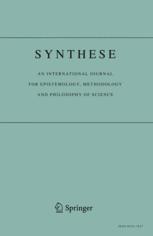Duhem and the origins of statics: Ramifications of the crisis of 1903–04
Abstract
Much speculation on the sources of Duhem's historical interests fails to account for the major shifts in these interests: neither his belief in the continuous development of physics nor his Catholicism, when his Church was encouraging the study of generally Aristotelian scholastic thought, led to any interest in mediaeval science before 1904. Equally, his own claim that he was merely testing his views on the nature of physical theory is easily squared only with earlier work with no trace of mediaeval science. Behind this discontinuity lies a major crisis. Though not a positivist, Duhem had based all his work on assumptions acceptable to positivists. One of these, the sterility of the Middle Ages, was refuted by his chance discovery of evidence of genuine mediaeval science in the autumn of 1903, but that left the doctrine of scholastic sterility intact.




